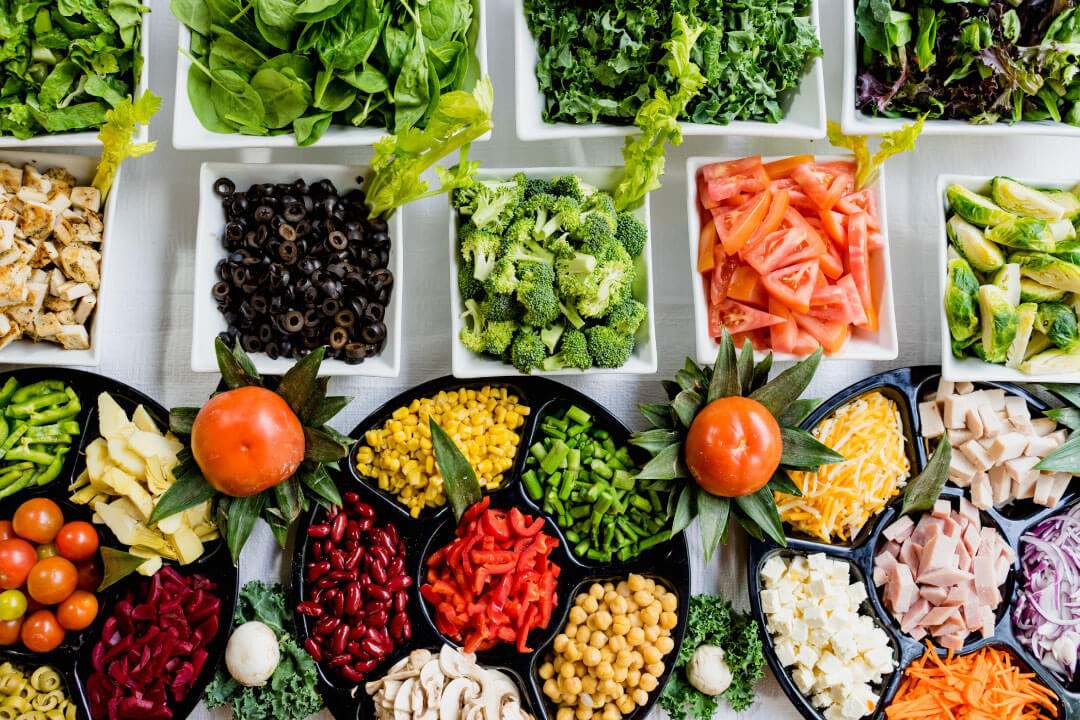
Remember as a kid being told to eat your carrots so you could see in the dark? We’re sorry to report that carrots don’t give you night vision, but you’ll be happy to know that they do make our list of food that is good for your eyes. So read on and see which other foods can help maintain good eye health.*

Fish
The omega-3 fatty acids in fish can contribute to good eye health, and may even help prevent dry eyes. In particular, salmon has a high level of omega-3 fatty acids. In general, fish from colder waters have higher levels of omega-3, including fish such as makerel, cod, herring and sardines. If you aren’t big on seafood, you can get omega-3 from seeds such as flax seeds and chia seeds, nuts such as walnuts and beans such as soybeans.

Eggs
Eggs have all sorts of vitamins and minerals that can contribute to eye health, such as vitamin A, lutein, zeaxanthin and zinc. Vitamin A can help keep the cornea healthy, while zinc can help with vision at night. Eggs are also an easy addition to any diet due to their versatility – add an egg to a meal or have one hard-boiled on its own as a snack.

Nuts
Nuts and seeds in general are good for eye health, in particular due to the presence of vitamin E. Of the range of nuts available, almonds have particularly high levels of vitamin E, but you can also get a decent dose of vitamin E from a serve of hazelnuts, peanuts or sunflower seeds. Of course keep in mind that nuts are high in calories too, so keep consumption just to snacks, or in your morning cereal.

Dairy
Dairy products such as milk and yoghurt provide your eyes with much-needed supplies of zinc and vitamin A. As with eggs, consumption of dairy helps with vision at night (zinc) and maintaining the health of your cornea (vitamin A). You can sneak dairy into your diet in a number of ways, such as in your tea or coffee or on your cereal.

Carrots
As we mentioned above, unfortunately carrots can’t give you night vision, but they do contain vitamin A and beta carotene, which is great for helping to prevent infections and the development of eye conditions in general. You don’t have to turn into a rabbit, but adding carrots to your stews, salads, soups or snacks will help to easily increase your intake of these important vitamins.

Kale (and other leafy greens)
Love it or hate it, you can’t deny kale’s status as a superfood. With antioxidants such as lutein and zexanthin, kale may help to maintain good eye health. Other vegetables such as capsicum and spinach are also high in lutein. If you are new to the world of kale, why not ease your way into it by baking it in the oven into crispy chip form.

Oranges (and other citrus fruit)
As you’d most likely know, oranges are packed with vitamin C, which is key for eye health. You can also get similar amounts of vitamin C from other citrus such as mandarins, lemons, limes, grapefruit, tangelos etc.
As you can see, many of the foods that are good for your eyes are good for your health in general. So keep up with all the healthy habits you’d do to keep your whole body in shape such as eating well, drinking lots of water, getting sleep and exercise and not smoking, and you’ll be well on your way to keeping your eyes healthy as well.
Diet is just one part of the puzzle with eye health – make an appointment for an eye check and we’ll discuss some of the other factors that may be specific to you.
*Advice in this post is of a general nature and is not intended to be a substitute for professional medical advice. Always seek the guidance of your health professional for concerns relevant to you.
Ready to book an appointment?
Online bookings available or call us on (07) 3463 0349.
This website does not provide medical advice. It is intended for informational purposes only. It is not a substitute for professional medical advice, diagnosis or treatment. Never ignore professional medical advice in seeking treatment. If you think you may have a medical emergency, immediately dial Triple 0 (000).
